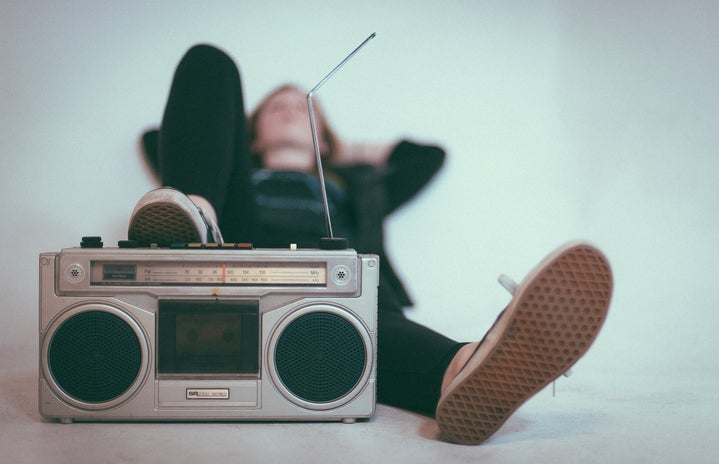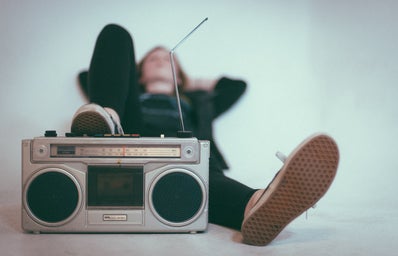Only 20 minutes to sleep But you dream of some epiphany Just one single glimpse of relief To make some sense of what you’ve seen”
– epiphany, Taylor Swift.
Listening to singer-songwriter Taylor Swift’s Grammy-winning album folklore feels different in April 2021. Even though the singer wrote and performed the entire album during the COVID-19 pandemic, it is only the 13th track, epiphany, that explicitly refers to the situation at hand. It is this feature that makes the song stand out from the rest. The first verse of epiphany as the singer herself has talked about, deals with her grandfather’s experiences at war. However, the second verse delves deep into the emotional and psychological trauma that frontline healthcare workers are facing as we speak. By comparing their struggles to soldiers fighting a battle, Swift recognizes the struggles of those who are literally saving our lives.
The lines, “With you, I serve/With you, I fall down, down (down)/Watch you breathe in/Watch you breathing out, out” hit differently at a time when India’s medical infrastructure is failing its citizens and people are googling ‘oxygen levels normal’ and turning to crowdsourced lists to look for oxygen cylinders. Every breath seems more precious than it has ever before.
Art, especially music, has been a comfort for most of us during this time. Whether it is playing upbeat songs to create a semblance of a morning routine during the lockdown or sending a friend a playlist for her birthday, music is what is making us feel a little bit like ourselves when everything around us seems to be crumbling. In June 2020, Indian singer and songwriter Prateek Kuhad released the music video for his song Kasoor. The song features Kuhad’s fans who reflect on their own experiences relating to love, relationships, and life in general. Although it may not seem like it, the video wasn’t initially conceptualized to look like something shot in the lockdown. The song would have looked pretty much the same even if it had been done from a studio. What’s interesting is that this one song sparked a series of videos online where people from all over the country recorded themselves, in their homes, reacting to certain situations. In fact, Kuhad’s own YouTube channel has 16 such fan-made versions of the song! This only goes on to show how music can really bring us all together in difficult times.
Lately, a 30-second video of Naveen Razak and Janaki Omkumar, students of the Thrissur government medical college became viral online. The two can be seen dancing to the tune of Boney M classic Rasputin while in their scrubs. Such videos of healthcare workers have received a lot of appreciation online in the past year because it makes doctors and nurses appear like actual human beings rather than simply being a couple of PPE kits and hazmat suits. The ‘Rasputin Challenge’ was quickly taken up by doctors and dancers who used it not only as a distraction but also as a way to spread awareness regarding COVID-19 protocols!
Escapism and music have been interconnected like never before in these unprecedented times. When every day seems to be a repeat of yesterday and nothing new is on the horizon, nostalgia has become a powerful emotion. People have turned to music in this lockdown to forget their worries and even revisit the past! Streams on JioSaavn of Bollywood playlists featuring music from the 1970s, ’80s, and ’90s more than doubled between March 15 and April 15. A Centre for Economic Policy Research (CEPR) study even showed that consumption of “nostalgia music” shot up on the music-streaming platform Spotify during the lockdown months. Listening to a song that you once loved may not solve the problems you’re currently facing, but it can certainly make you feel a little better, even if it’s just for 3 minutes and 14 seconds.
As lonely and sad as it may seem, in this lockdown I find myself talking to my Alexa more frequently than I used to. I wake up to music and I go to bed listening to whatever old Hindi song that I have heard my mother hum in the kitchen during the day. Every activity seems to have some sort of background score, whether it’s a workout, a shower or the newest baking experiment. Listening to songs has almost become a way to cope in between looking up leads for medicines and ICU beds and talking to family and friends who are currently isolating. It is music that gives me strength and despite the horribly annoying “Download Spotify Premium” ads, I’m glad that this momentary magic exists.


